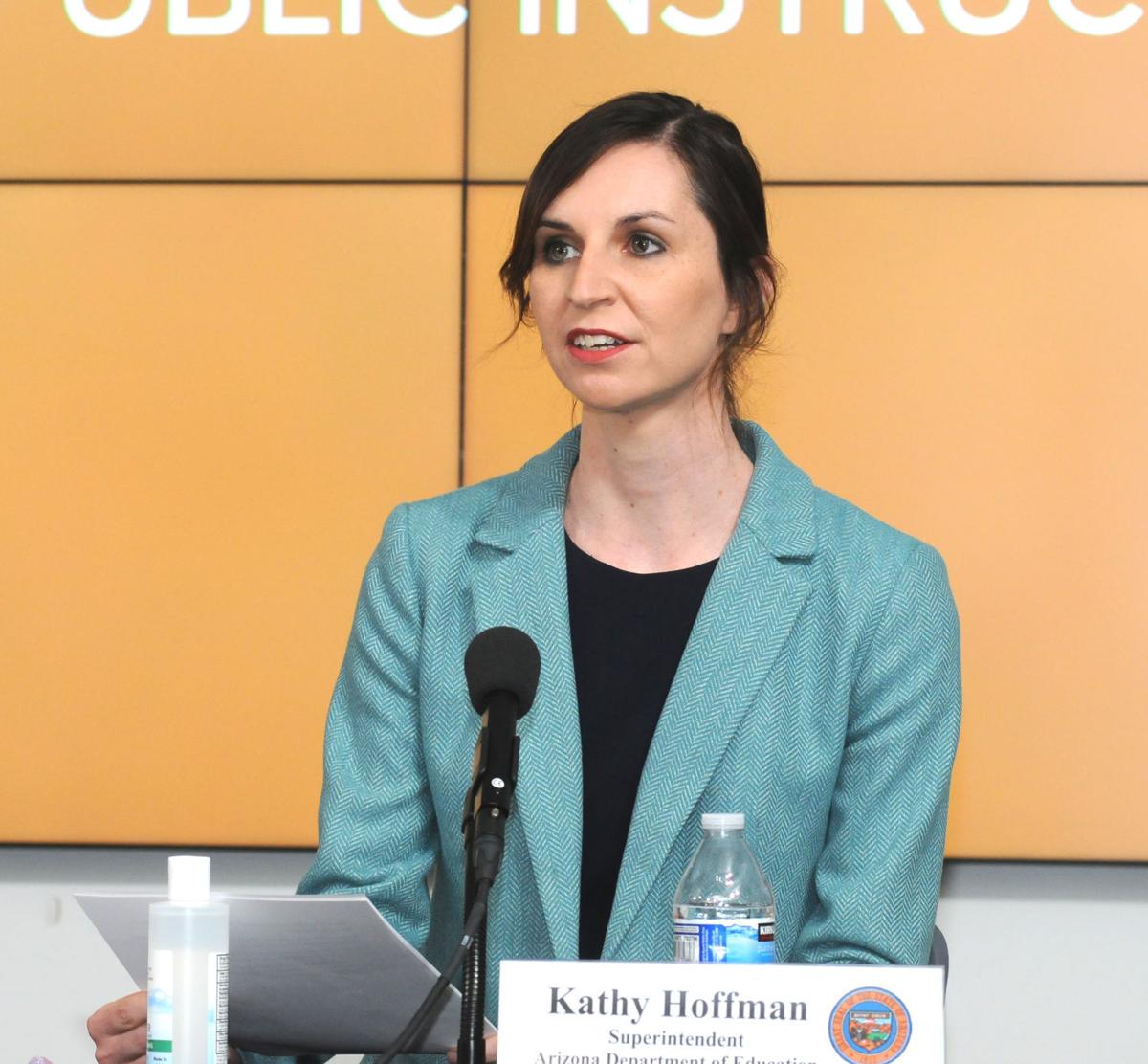Arizona’s top education official told lawmakers Tuesday that they need to ensure schools get as much money for online courses as the law now provides them for kids in seats.
Kathy Hoffman said public schools are expected to lose up to $500 million in aid because the state law funds distance learning at 5% less than in-person instruction.
She acknowledged that Gov. Doug Ducey did come up with some one-time dollars to compensate.
That was $370 million the governor took from money he received from the federal Coronavirus Aid, Relief and Economic Security Act.
But Hoffman, speaking to members of the Senate Education Committee, said that still shorted schools statewide by $247 million. And aides to the governor said he has no interest in coming up with the difference. At the same time, however, Ducey is pushing ahead with a plan to permanently cut taxes by $200 million this coming budget year, a plan that calls for that rising to $400 million in cuts the following year and $600 million the year after that.
“It is absurd to talk of tax cuts when there are so many families with basic needs our state can help meet,” Hoffman said.
She noted that Senate Republican leaders have apparently taken a different position than Ducey and are supporting full funding of distance learning this year. And the schools chief said there’s no reason not to.
“When the state sits on a billion-dollar rainy-day fund and projects a $2 billion surplus, there is no excuse to not fully fund every school,” Hoffman said.
“There has never been a more urgent time to tap into our safety net and provide for Arizonans,” she continued. “Anyone who thinks it’s not raining in Arizona right now needs to check their privilege.”
What ultimately is needed, she said, is “predictable, sustainable funding” that would allow schools to plan their budgets and lure and fairly compensate education professionals.
She said voters share that belief, citing the approval in November of Proposition 208. That measure enacted a 3.5% tax surcharge on any income above $250,000 a year for individuals and $500,000 for married couples filing jointly, a measure proponents say could raise $940 million a year — but not until the 2022-2023 school year.
The initiative’s legality is being challenged in court by business interests and some GOP legislators.
Hoffman did give a tip of the hat to Ducey’s plan to use some cash to boost literacy at early grades. But she said that’s not a permanent solution.
“One-time grant funding simply doesn’t cut it for staffing our schools,” Hoffman said. “When we use a patchwork approach to funding our schools, our students lose out.”
She also had kind words for Ducey’s plan to expand broadband access “as it will be critical to bridging the opportunity gap for students and families.” But here, too, Hoffman said more is needed.
“Even for our schools where internet is reliable, the cost of virtual learning is staggering,” she said. “From ordering expensive devices to hiring additional IT staff to manage the issues that rise on digital platforms, to training educators on new digital tools, I cannot overstate the impact distance learning has had on schools’ budgets.”
Technology aside, Hoffman said lawmakers need to provide more cash for public education if they want better results and to keep qualified teachers in the classroom. And the situation, she said, has only been exacerbated by COVID-19 and teachers either dying or quitting amid concerns.
“For too long, Arizona has been in a crisis with a shortage of educators, not because we lack the talent, but because too many exceptional teachers have burned out from overcrowded classrooms, noncompetitive pay, and a lack of essential resources for students,” she said.
“The demands of navigating a classroom in a pandemic has exacerbated the strain on our workforce,” Hoffman said. “We already know of teachers who have either bought themselves out of their contracts or are planning to not renew their contracts for the next school year.”
It’s not all about classroom learning, the schools chief said. She said students, just like adults, have been struggling with mental health issues.
Hoffman said she is pushing for putting another $43 million into the state’s School Safety Grant Program, more than double current funding. She said that could add another 355 counselors or social workers to schools.
Hoffman endorsed a handful of measures being pushed by Democrats.
SB 1227 by Sen. Christine Marsh of Phoenix would set up a committee to study what is an “appropriate class size” and identify methods — and funding — to reduce the number of students in a classroom, something that also could require additional facilities. It already has cleared the Senate Education Committee, with only Republicans Nancy Barto of Phoenix and Tyler Pace of Mesa in opposition.
Hoffman also said she was glad to see that the House Education Committee had approved HB 2015. That proposal by Sen. Lorenzo Sierra, D-Cashion, seeks to provide $15 million this coming school year and another $22.5 million the following year in grants to schools for preschool programs.
She also supports SB 1756 by Sen. Martin Quezada, D-Glendale, to provide family and medical leave insurance benefits.
“In times of sickness, we care for each other by ensuring that we can take time off and still make ends meet,” Hoffman said. “Those assurances are important not just for our educator workforce but for all workers.”





